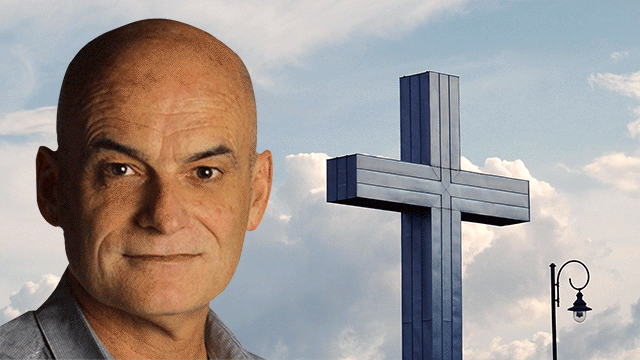Garry Linnell: The Catholic Church has no right to lecture us on ethics or morality


Imagine a business where 7 per cent of its management team had been accused of child sex abuse.
Imagine an organisation in which it was proven – time and time again – that senior executives had deliberately concealed crimes, humiliated victims and provided shelter for suspected criminals.
Imagine, too, that the only product this business sold to consumers was something it could not even prove worked – or even existed.
This business would be in enormous trouble, right?
Now imagine that through some truly miraculous turn of events this company was still operating and that, despite a shrinking customer base and a shredded reputation, it decided to weigh into debates about important issues of public wellbeing.
We’d all laugh, right?
The hypocrisy and bloody gall would have us in stitches.
Yet here we are on the cusp of Australia’s long-awaited rollout of coronavirus vaccines only to find several of Australia’s largest businesses – err, sorry, religious institutions – sowing doubts in the minds of their followers about the ethics of the vaccination process.
Chief among these organisations muddying the waters is the Catholic Church, an organisation with an estimated wealth of $30 billion and which continues to enjoy tax-free status despite a Royal Commission finding that at least 7 per cent of its priests had been alleged child sex abusers.
The church has a property portfolio and real estate footprint across Australia that rivals Westfield, employs more than 200,000 people and is an annual recipient of billions of dollars of taxpayer funds.

A Catholic archbishop has raised “ethical” concerns about the Oxford vaccine.
It’s a business in everything but name, without any public accountability, transparency or regulatory oversight. Crown should be so lucky.
The issue at stake: The federal government’s decision to buy 50 million doses of the AstraZeneca vaccine, which the majority of Australians will be offered over the coming six months.
When the government announced last year that it had signed its deal with AstraZeneca, Catholic, Anglican and Greek orthodox leaders were quick to raise ethical concerns because a cell line from a fetus electively aborted almost half a century ago was used during the vaccine’s initial development process.
The use of fetal cells hundreds and often thousands of generations old is a common enough procedure during the development stage of a vaccine and has played a significant role in helping stop the spread of rubella, chickenpox, hepatitis A and other illnesses.
Many churches, particularly the Catholic Church, oppose abortion and the use of fetal tissue and cells for medical or other scientific research.
It’s a stance they are perfectly entitled to hold.
Just like the thousands of Australians who had their childhoods stolen from them by a generation of predatory priests, and who then had to fight tooth and nail against these powerful organisations determined to deny their suffering and ongoing shame.

The Catholic Church in Australia is a tax-exempt organisation with a massive property portfolio.
Those Australians are also entitled to an ethical and moral stance – that institutions like the Catholic and Anglican churches are steeped in hypocrisy, have lost the confidence of most Australians, and are content to show more compassion for the unborn than the generations of children that were placed in their care.
What makes the church opposition to the AstraZeneca vaccine just as distasteful is that they are engaging in a phoney war by suggesting their followers ask for an alternative.
The government has made it clear that most Australians will not be given an option and in most cases will be offered the AstraZeneca vaccine, which will be produced locally by the biopharmaceutical company CSL.
The Vatican has already said that it is morally acceptable for Catholics to be immunised with vaccines that may have used fetal cell lines from the past if no other alternative existed.
It was a position acknowledged last week by a spokesman for the Catholic Archbishop of Sydney Anthony Fisher, who said: “Anyone who is concerned about the ethics of the AstraZeneca vaccine should be confident in requesting an alternative, but also be confident that it is not unethical to use the AstraZeneca vaccine if there is no alternative reasonably available.”
Australia has also bought 20 million doses of the Pfizer vaccine, which did not use fetal cell lines during its development phase.

The 100-year-old Ellen Prosser, known as Nell, receives the Oxford/AstraZeneca COVID-19 vaccine. Photo: Getty
More than 80,000 injections of that vaccine, which requires two doses, arrived in Australia on Monday and are expected to begin being administered next week.
But almost all of these are expected to be given to high-risk members of the community, such as hotel quarantine staff and healthcare workers.
And so we come back to those muddying of the waters.
Knowing full well that immunisation options are extremely limited in this pandemic, why do church leaders continue to suggest to their dwindling number of followers that they should be demanding a choice?
Immunising the public and lessening the risk of further devastating lockdowns is surely the most pressing priority now faced by this nation.
Australia has led the world on handling the virus and trails it when it comes to immunising the public.
There is no time left.
Waiting another six months for further stocks of vaccines not ‘tainted’ by fetal cell lines to become available is simply not an option.
The churches can keep raising their concerns.
But they long ago forfeited the right to play a significant part in any national conversation, or to lecture to Australians about moral and ethical issues.
For organisations that claim to be in the spiritual welfare business, their customer care record is appalling.
Garry Linnell was director of news and current affairs for the Nine network in the mid-2000s. He has also been editorial director for Fairfax and is a former editor of The Daily Telegraph and The Bulletin magazine








